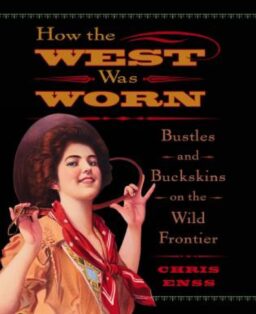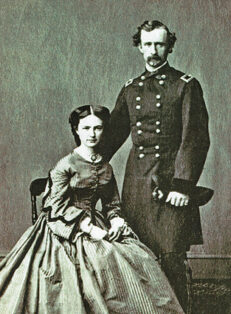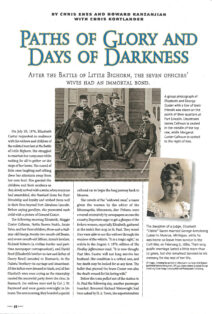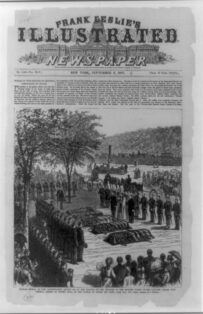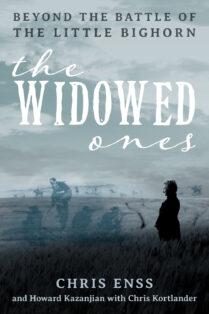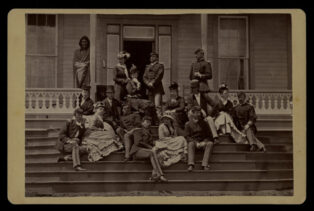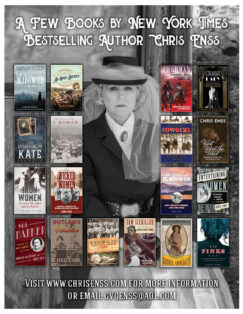Enter now to win a copy of
The Widowed Ones: Beyond the Battle of the Little Bighorn
Thirty-four-year-old Elizabeth Bacon Custer filed into the Methodist church in Monroe, Michigan, on August 13, 1876, with hundreds of others attending the memorial service of her husband of twelve years, General George A. Custer, and five of his officers killed at the Battle of the Little Bighorn. She was adorned in a black bombazine (silk) dress with black fringe and a black bonnet with a black crepe veil. The mourning outfit would be her standard wardrobe for years to come. She walked mechanically, but purposefully, down the center aisle, her eyes focused on a reserved seat in the front pew. Friends and acquaintances smiled piteously at her as she passed; some refrained from looking at her at all. Those who knew of her and her well-known husband by reputation only stood on tiptoe and craned their necks to watch her every move.
The heat that afternoon was sweltering. Members of the Baptist and Presbyterian churches had joined the Methodists to pay tribute to the slain soldiers who were raised in the town located on the western shores of Lake Erie. The combination of congregants along with the other funeral goers made the atmosphere in the house of worship oppressive. Halftones from the bright sun diffused through the stained-glass windows cast a colorful light on the portrait of General Custer sitting on the organ next to a magnificent podium in the very front where the pastor delivered his weekly sermons. Custer’s picture was surrounded with an evergreen wreath, and two sabers crossed underneath the picture. The names of Captain Yates and Henry Armstrong Reed were scrawled across ribbons encompassing another display in evergreen.
Elizabeth’s attention was fixed on the national flag close to the lectern. She was quiet and composed. Her sister-in-law, Margaret (Maggie) Calhoun, was anything but that. She struggled to control her crying. She was grieving over the losses of her husband, Lieutenant James Calhoun; her three brothers, General George Custer, Captain Thomas Ward Custer, and Boston Custer; and her nephew Henry Armstrong Reed. Anxiety was written in Annie Yates’ every feature. Her husband, Captain George W. Yates, had also lost his life. More than a month had passed since Custer’s Seventh Cavalry met their end at the hand of the Lakota Sioux, Northern Cheyenne, and Arapaho Indians in Montana Territory. The bodies of the widows’ loved ones still remained behind at the battle site.
To learn more about Elizabeth Custer and her friends read
The Widowed Ones: Beyond the Battle of the Little Bighorn
